On the Bookshelf
Faculty books
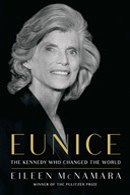
Simon & Schuster, $28
For Joseph P. Kennedy Sr., the rules of child rearing were uncomplicated: Prepare sons for public office and power, daughters for marriage and motherhood. Eunice Kennedy Shriver (1921-2009), the fifth of nine siblings in a famous family, both fulfilled and defied her father’s expectations. McNamara, who won the 1997 Pulitzer Prize in Commentary as a Boston Globe columnist and now directs the Brandeis journalism program, explores the life of the woman who founded the Special Olympics and expanded the rights of people with intellectual disabilities, yet whose influence and reach have remained somewhat under the radar.

Columbia University Press, $29.95
The 1947 “Hollywood 10” hearings, held by the House Un-American Activities Committee in Washington, D.C., brought the Red Scare to La La Land. Studio moguls pledged to root out Communist Party sympathizers hiding in their ranks. Movie-industry stalwarts were scrutinized and accused. Established careers were ruined. Doherty, professor of American studies, captures the cinematic sweep of a tumultuous time, while keeping a tight focus on the men and women caught up in the furor.
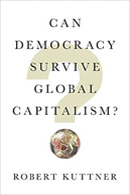
W.W. Norton & Co., $27.95
Fraying safety nets. Widening gaps between haves and have-nots. A gathering storm of civic despair. Is it time to call American democracy a failure for all but the top few percent? Not yet, says Kuttner, economics journalist, co-founder of The American Prospect and visiting professor at Heller. In this book, he recalls a time in American life when capitalism wasn’t a predatory force, and explains how the nation’s economic health could be restored, if we can find the political will to do it.
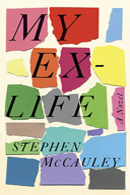
Flatiron Books, $25.99
In San Francisco, David is down on his college-counseling job, his younger boyfriend has split, and he’s losing his apartment. On Boston’s North Shore, Julie owns a big shabby house, and her daughter needs college advice. Why not invite old friend David to move in with them? Since David is also Julie’s ex-husband, complications are apt to — and do — ensue. McCauley, associate director of the creative writing program, mines all of them for comic and heart-tugging effect.

NYU Press, $35
Jewish women stood at the forefront of the feminist movement in the ’60s, ’70s and ’80s. What impact did their Jewishness have on modern feminism, and vice versa? Antler, professor emerita of American Jewish history and culture, tells the personal stories of more than 40 movement leaders, including Susan Brownmiller and Laura Geller, adding depth to a seldom-studied topic in the history of contemporary women.
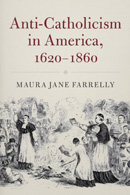
Cambridge University Press, $24.99
Early settlers in the New World imported deep strains of anti-Catholicism, which remained active in America for centuries. According to Farrelly, associate professor of American studies, exploring “how those anxieties were finally alleviated or eliminated, creating the conditions that allowed people to abandon their bigotry” offers important information about the American character and religious intolerance in general.

Johns Hopkins University Press, $64.95
A common diagnosis in the U.S., attention-deficit/hyperactivity disorder is recognized far less often in other countries. Conrad, professor emeritus of sociology, and his co-editors compile analyses of the U.S. and 15 other countries (including Brazil, Ghana and Japan) for an international comparison of ADHD interventions and guidelines.

Bloomsbury Academic, $24.95
Philosophy professor Hirsch invents a dialogue among three characters who are both Talmud scholars and philosophers to play with the ideas in epistemology. As one character observes early in the book, “I am not saying that I am made anxious by doubts. I am made anxious if I reflect deeply on the metaphysical possibility of my being utterly deluded about everything that matters to me.”
Alumni books

Simon & Schuster, $32.50
“Les Demoiselles d’Avignon” — an 8-foot-tall canvas by a 25-year-old Spaniard living in Paris — was unlike any painting ever seen when it was first exhibited in 1916. The bodies of five nude women are abstracted into angular lines and two-dimensional planes, their faces simplified and exaggerated in the manner of African masks. Pablo Picasso’s painting was such a departure from cultural norms even his friends thought he had gone mad. Unger, who writes about art for The Economist, details Picasso’s creative explorations before and after he unveiled his masterpiece.

HarperCollins, $16.99
This novel for young readers follows a 12-year-old Afghan-American boy who believes his Afghan mother, living illegally in the U.S., has been deported. Left alone in their New Jersey home, he heads for New York City to seek shelter with a relative but suffers an accident that lands him in a hospital and complicates his quest. A plucky protagonist and a predicament pulled from today’s headlines make this book both absorbing and thought-provoking for fiction lovers ages 8-12.

Sterling Epicure, $24.95
Scrimping only on fats, salt and processed sugar, the recipes in this cookbook are temptingly rich in flavor, tradition and variety. Shoyer serves up Israeli Herb and Almond Salad, Arroz con Pollo with Brown Rice and Salsa Verde, Brisket Bourguignon, and other dishes that prove life can be a banquet for healthy eaters.

Oxford University Press, $34.95
Novelist and critic Léon Werth (1878-1955), hiding in a country house in the Jura Mountains, wrote what many consider the most finely observed, detail-filled and compulsively readable account of life in Vichy France. Ball translates Werth’s diary into English for the first time, giving us his firsthand accounts of the Nazi occupation and Resistance efforts, as well as intimate portraits of ordinary French citizens trying to survive the war.

Princeton University Press, $24.95
The three kinds of lies described by Mark Twain might be due for a 21st-century update: “lies, damned lies and metrics.” Performance metrics have their place in organizations, says Muller, a history professor at Catholic University, but must be used to support personal observations, not replace them. His book describes the “metric fixation” that has gripped education, medicine, businesses, government and philanthropy; details the dysfunctions it creates; and includes a checklist of when and how metrics ought to be used.
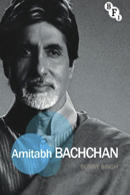
British Film Institute, $29.99
This book spotlights the career of the Bollywood actor a 1999 BBC poll selected as “star of the millennium” over such luminaries as Laurence Olivier and Charlie Chaplin. A movie idol since the early 1970s, Amitabh Bachchan “is not Indian cinema’s first star,” Singh writes, but “he is its longest-lasting one, occupying nearly half a century of India’s hundred years of filmmaking.”

Nancy Paulsen Books, $17.99
“Bobbi Gibb must wear a skirt to school because she is a girl. She is not allowed to run on the school’s track team. Because those are the rules — and rules are rules.” As this charming picture book shows young readers, Gibb went on to break rules in 1966 as a 23-year-old, becoming the first woman to run the entire course of the Boston Marathon, which did not officially recognize female runners until 1972. Although race officials were convinced women couldn’t run 26.2 miles, Gibb ran the distance faster than two-thirds of the field that day.

University of North Carolina Press, $35
Smith, an assistant professor of history at William Woods University, takes on a timely question for a fractured body politic: What are the ethical underpinnings that make America America? To find an answer, he returns to the Revolutionary Era and the leaders who came of age then — John Adams, Benjamin Franklin, Thomas Jefferson — studying the behaviors and beliefs they and other founders considered “honorable” and “virtuous.”
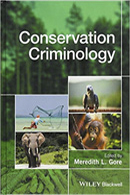
Wiley-Blackwell, $85
This collection of essays establishes a foundation for the emerging field of conservation criminology, which studies the illegal exploitation of natural resources, including poaching, unlawful fishing and wildlife trafficking. According to Gore, a conservation social scientist and associate professor at Michigan State University, such exploitation is now the leading cause of global wildlife decline, more destructive than habitat degradation, climate change and habitat loss.

Fordham University Press, $29.98
The ability to create a heightened dramatic tension using naturalistic portrayals of light separated Georges de La Tour (1593-1652) from other artists. Judovitz, professor of French at Emory, illuminates the painter’s storytelling skills, and the ways in which he imbued everyday details with an unmistakable spiritual dimension.
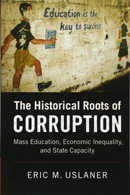
Cambridge University Press, $29.95
Surveying 78 countries, Uslaner, professor of government and politics at the University of Maryland, College Park, finds a convincing statistical relationship between levels of mass education in 1870 and corruption levels in 2010. Why? Because education leads to economic equality, and, the author argues, “education provides the foundation for ordinary people to take part in their governments — and to take power away from corrupt leaders.”

Jessica Kingsley Publishers, $22.95
Based on research Wodis conducted for her doctoral thesis, this book spotlights the experiences of seven women with autism, including Temple Grandin, as they navigated the transition from childhood to adulthood. In 2018, the internet offers girls with autism easy access to self-expression, political mobilization and advocacy, Wodis finds. And across all eras, an early diagnosis and familial support have helped smooth the path.
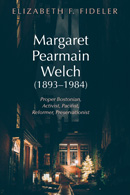
Resource Publications, $24
A Proper Bostonian who lived from 1893 to 1984, Margaret Pearmain Welch shocked many of her Louisburg Square neighbors with her “improper” forays into Quaker pacifism, and activism in the areas of reproductive rights, environmental protection and monetary reform. This biography of a little-known but “exceedingly interesting” individual, Fideler writes, reveals someone “who from youth to old age had the gift of seeing and writing about herself in relation to the world she lived in.”
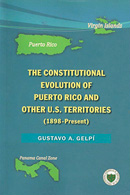
Interamerican University of Puerto Rico, $25
This collection of writings examines the unique legal relationship that began when the United States acquired Puerto Rico at the end of the 1898 Spanish-American War. At the center of the relationship is a constitutional enigma: Can the legal status of U.S. territories be reconciled with the fundamental American principles of self-determination, government by consent and popular democracy? Gelpí is a judge of the U.S. District Court for the District of Puerto Rico.

New Harbinger Publications, $49.95
“CBT Made Simple” provides clear, step-by-step guidance for in-training and seasoned clinicians who use cognitive behavioral therapy to treat depression, obsessive-compulsive disorder, eating disorders, anger, aggression and many other mental-health issues. Josefowitz is a psychologist in private practice.
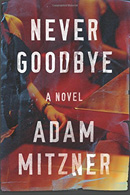
Thomas & Mercer, $15.95
A sequel to the novel “Dead Certain,” New York City attorney-turned-singer Ella Broden returns to solve another murder, this time alongside her cop boyfriend and the woman who replaced her as deputy chief in the Special Victims Bureau. This is the sixth book by Mitzner, a Manhattan lawyer who writes thrilling procedural page-turners.
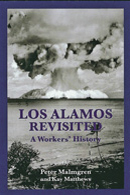
Wink Books, $18
This oral history of the Los Alamos National Laboratory, founded in 1943 to secretly design nuclear weapons as part of the Manhattan Project, is narrated by the workers who helped establish it, many from Hispanic communities or Native American pueblos in northern New Mexico. The workers’ pride in the skill and dedication they brought to the job is a common thread. Their patriotism is another. Through it all, the specter of illness is also present, a legacy of the radiation and toxins to which so many were exposed.

Familius, $16.99
Kurtz, writer of HuffPost’s Mother Matters blog, teaches new and experienced moms how to prioritize the postnatal self-care that’s so important yet so frequently forgotten. Topics include sleeping and eating well, getting sufficient exercise, dealing with mental health issues and exploring holistic health techniques such as acupuncture. A much-needed resource written with warmth and empathy.

Finishing Line Press, $19.99
Berlin, an award-winning novelist, releases a collection of poetry inspired by a love of the sweet science and a respect for all battered warriors attempting to outlast life’s blows. The title poem concludes: “The standing / eight is eight / seconds and / counts as a / knockdown on / the scorecards / even though / we’re standing.”

Hendrickson Publishers, $99.95
From marriage, to barbers and beards, to textiles, to food production, this four-volume set offers a look at daily life during the time of the Bible and beyond, roughly 2000 BCE to 600 AD. Entry by entry, Yamauchi and Wilson explain the culture, technology, history, laws and politics of the eras covered.
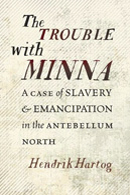
University of North Carolina Press, $27.95
In 1822, New Jersey widow Elizabeth Haines “leased” a slave named Minna from her owner, a common transaction at the time. Thirteen years later, long after the four-year lease had ended, Haines went to court to ask that the slave owner compensate her for money she spent on Minna’s care. The legal battle that followed provides insights into moral and legal reasoning in the U.S. during the first half of the 19th century, as well as the law’s definition of freedom and enslavement.
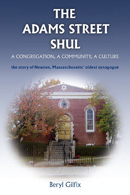
CreateSpace, $20
At 106 years old, the Romanesque-style Adams Street Shul, in Newton, Massachusetts, stands as strong and vibrant as ever. The city’s oldest synagogue grew amid a neighborhood of Italian, Irish and French immigrants at the turn of the 20th century. Gilfix, whose grandfather helped found the Orthodox synagogue, tells the fascinating past and present of an institution that continues to serve its diverse congregation and wider community.

Special Needs Parent Consulting, $11.95
Published on April 2, World Autism Awareness Day, “Raising Ross” tells the story of Rubin-Haber’s oldest son, Ross, now a young adult, and his journey with autism. Families raising a child with autism will recognize the pitfalls and rewards of their daily lives in a memoir filled with candor and love.

Routledge, $54.95
Part of the Textbooks in Aging series, this volume examines the options available to older adults as they transition from driving to a dependence on community transit. Forward-thinking solutions currently in place around the U.S. are discussed as are technology ideas for the future. Silverstein is a professor of gerontology at UMass Boston.
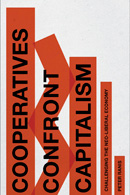
Zed Books, $26.95
Ranis, professor emeritus in political science at the City University of New York, explains how business cooperatives evolved in response to economic crisis and are currently spurring the reinvention of labor unions. The book includes an in-depth look at the Cuban cooperative movement.
Brandeis University Press

$35
Dollinger, who holds a chair in Jewish studies and social responsibility at San Francisco State University, explains the dynamics of a little-studied alliance that arose during the 1960s between black nationalists and Jewish activists. Taking a page from the tenets of the Black Power movement, American Jews began to outline a Judeo-centered political agenda that focused on Jewish day schools, gender-inclusive liturgy and other forms of community building.
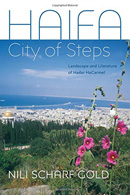
$29.95
Gold, born in Haifa, Israel, in 1948, takes readers on a tour of the city of her youth, particularly the Hadar HaCarmel neighborhood, midway up the slope of a mountain facing Haifa Bay. The book’s “course,” she writes, “follows my own personal map and preserves the corners and intersections, the houses and staircases, the stores and parks that shaped me as a person, as they did for many of my contemporaries and compatriots,” the first children to grow up in the independent State of Israel.
